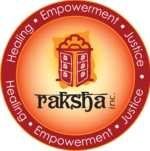We remember those who are affected by suicide and highlight the intersectionality between suicide and domestic violence.
Suicide and domestic violence are both public health concerns. Yet, the two are rarely seen as correlated until a shocking murder suicide makes the news; or a victim commits suicide after enduring years of abuse.
Multiple studies and research point to the mental health impacts that exposure to domestic violence are known to cause serious mental health impacts on survivors, who are at high risk for depression, anxiety, PTSD among other mental illnesses. Survivors of intimate partner violence are twice as likely to attempt suicide multiple times.
The risk of deaths by suicide and murder-suicides is higher when abusers/ perpetrators are themselves suffering from mental illness or depression. Threats of suicide or self harm are an extreme form of coercive control used by abusers. More than two-thirds of murder suicides have been linked to domestic violence, when the perpetrators/ abusers are male.
Risks of suicides are high in communities where factors like cultural conditioning, shame, normalization of abuse prevent people from seeking help for mental health. In addition, immigrant communities shoulder additional psychological distress and impacts on mental and emotional health due to trauma of immigration and resettlement. Inter-generational trauma and untreated mental health issues combine to increase rates of violence and suicide as seen in the Asian American and South Asian communities recently.
According to the Office of Minority Health (2021), suicide was reported to be one of the leading causes of death among AAW between the ages 15 and 24 years in 2019. The suicide rates among teen Asian American women has gone up by 50% in the last decade.
The intersectionality between domestic violence, mental health and suicide are undeniable. This reality amplifies the need for creating conversations, awareness and easier access to linguistically and culturally specific resources on domestic violence and mental health.
Resource List
National Crisis Hotlines
988 Suicide and Crisis Lifeline
Call or text: 988
Crisis Text Line
Text “NAMI” to 741741
The Trevor Project Lifeline (LGBTQIA+ Youth)
1-866-488-7386
Text “START” to 678-678
Teen and Youth Hotline
1-800-TLC-TEEN (852-8336)
Your Life Your Voice Youth Helpline
1-800-448-3000
Text VOICE to 20121
Active Minds
A nonprofit organization supporting mental health awareness and education for young adults ages 14-25.
CRISIS TEXT LINE
Text “Brave” to 741-741
GA HelpLines
Georgia Crisis & Access Line (24/7)
1-800-715-4225
GA Crisis Text Line (24/7)
Text “GA” to 741741
Georgia Mental Health Consumer Network
Peer2Peer Warm Line (24/7)
1-888-945-1414
GA LGBT Peer Listening Line
1-800-399-7337
M-F 5PM-10PM EST
South Asian Helplines/Resources
908-367-3374
Thursdays, 8-10 PM ET
Sundays, 8-10 PM ET
South Asian Mental Health Initiative and Network (SAMHIN)
Support Group for Suicide Loss Survivors
Meets every 2nd and 4th Monday of every month
Time: 8:00pm – 9:00pm EST
VIRTUAL – ON ZOOM
Cost: Free
Call Shikha at (908) 601-3225 for the zoom link
South Asian Therapist Directory
Online directory of culturally-informed, South Asian therapists, including Indian, Pakistani, Bangladeshi, Sri Lankan, Afghani and Nepali heritage.
SAMHAJ Recovery Support Group via zoom every 1st Thursday of the month at 7pm EST.
Top Rated Apps for Suicide Prevention
Disclaimer: This resource list has been compiled by Raksha, Inc for awareness and reference purposes and does not constitute legal or medical advice. Raksha, Inc is not responsible for content of a linked site or any link in a linked site. Raksha, Inc is not liable for use or damages arising in the use of resources, website URLs, hotline numbers in the list or any material contained in it, or from any action or decision taken as a result of using the resources.

